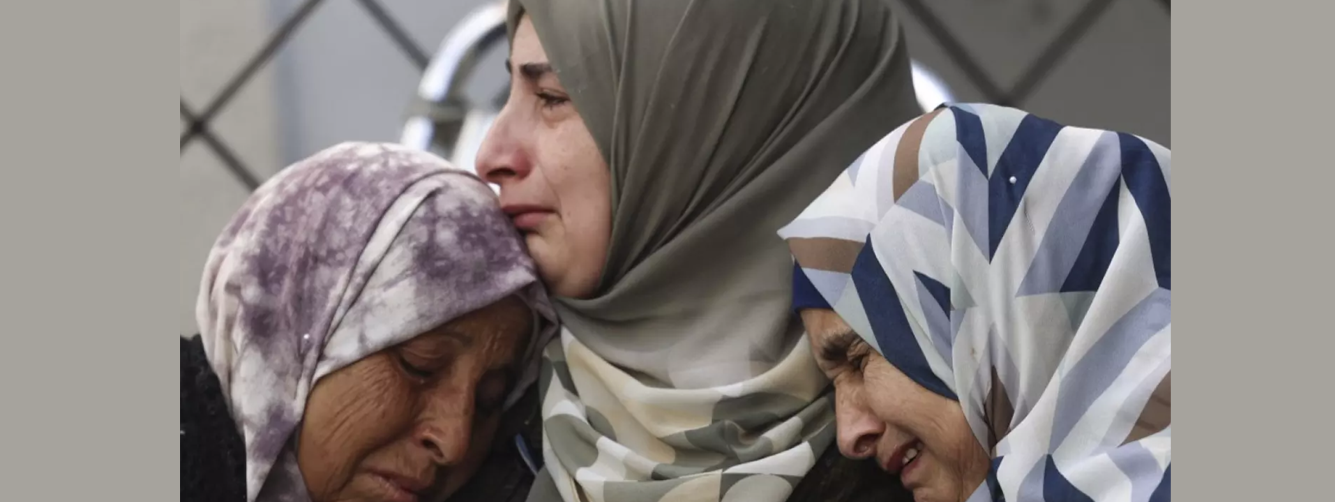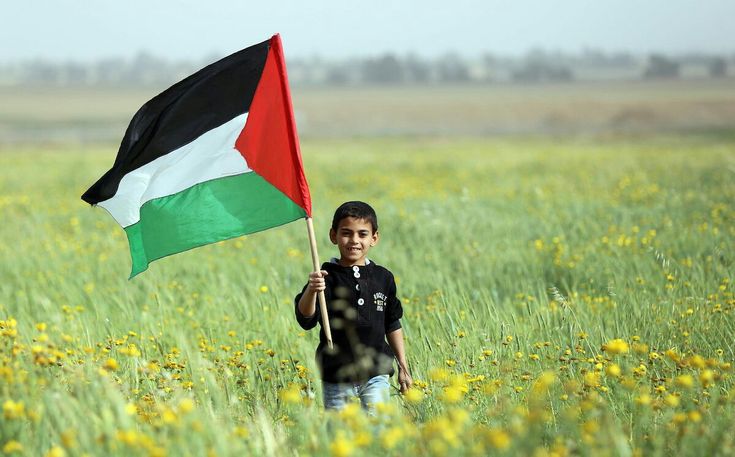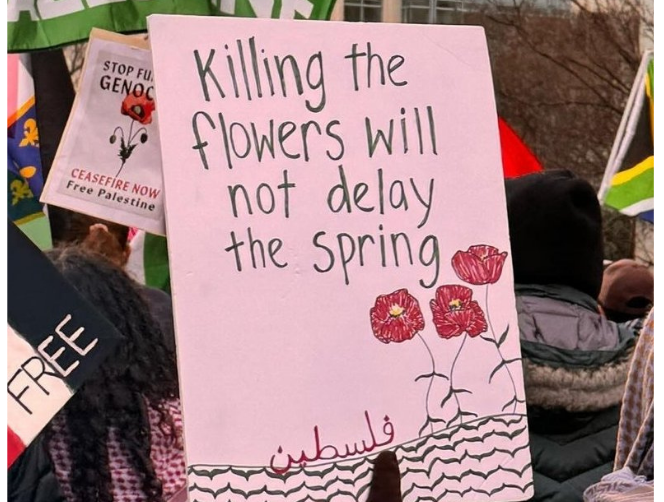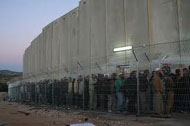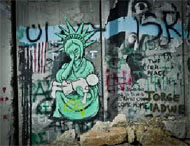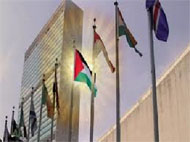
This Saturday, Taybeh - a Palestinian village in the West Bank, 35km from Jerusalem and 12 km from Ramallah held its 8th annual beer festival or the Palestinian version of the German Oktoberfest. The festival had a different, almost liberating vibe to it. It was different from what one would see in the daily hassles of life everywhere in the West Bank. It also felt far away from the physical as well as psychological suffocation of the occupation. After all, that’s what festivals are all about.
Walking up the hill leading to the compound where the festival was being held, I could smell the smoke from barbequed kebab, the laughter from the crowd and the Bavarian music from the stage. Palestinians of all ages and internationals were going up and down, buying food and drinks, watching the show and socializing in circles. In my mind, I was wondering if there were any Israelis in the group just hanging out enjoying their beer. And for a minute I dreamt of a time in the future, where this same festival would see as many Israelis as Palestinians as equals, united by a just peace.
Taybeh is the only all-Christian village in the West Bank and it is known for its preservative-free, unpasteurized and locally made Taybeh Beer. It is the only Palestinian beer and “the finest in the Middle East”. It not only caters to Palestinians through is pure alcoholic and non-Alcoholic beers, but it’s also the only franchised beer that circulates in European markets, especially Germany. The owners take pride in this almost homemade beer they offer to their customers and in the fact that it represents Palestine in European markets.
The factory was founded by a Palestinian family who came back to their homeland after the signing of the Oslo Accords. Like many other Palestinian returnees, the Khourys came with the hope that peace had once and for all been achieved and were eager to do something for their motherland. But the Oslo deal didn’t live up to the expectations of Palestinians. The economic independence that the agreement was supposed to facilitate only ended up creating a Palestinian economy dependent on Israel, which started placing restrictions on what can be exported and to whom and in what quantity. While Israeli goods flooded Palestinian markets, Palestinian products were finding it hard to access Israeli markets because of the high subsidies Israeli manufacturers benefited from.
Soon after, when the second Intifada broke out and instability set in, Israel controlled Palestinian mobility even within the West Bank; producing and distributing local products became difficult if not impossible. Palestinian manufacturers could not access Palestinian markets let alone Israeli shops. Palestinian investors and skilled laborers who came back then started leaving with broken financial records and shattered dreams.
On the other hand, today many Palestinians have made the conscious yet tough decision to stay in Palestine and raise their children here, even when they have the option to go elsewhere. They refuse to let Israel destroy the identity of Palestine and the Palestinians. Their mere presence, they say, is their weapon of resistance; it is the only thing that could coerce Israel into finding a solution to the “Palestinian problem”. Living in their land, despite the Occupation, the suppression, inequality, eviction, criminalization and dehumanization they face day in and day out is how they deny Israel absolute victory over its relentless human rights and international law violations.
Nonetheless, for most, just everyday life is sometimes almost impossible to bear. High unemployment amidst rising living costs and the lack of opportunities to live up to one’s full potential forces many educated and skillful Palestinians out of their country, even though, if given the opportunity, they would opt to live in Palestine.
While the Khoury family was only one of many Oslo returnees, their factory is one of the few still standing. Many other Palestinian returnees that came with knowledge and capital ready to jump-start the Palestinian economy are now bankrupt, out of business or have gone back to their pre-Palestine life. As such, Taybeh Beer does more than represent Palestine in Europe. It is also a symbol of Palestinian resistance and the perseverance of Palestinians.
The Oktoberfest may have had a festive, liberating feel to it. A deeper thought however reveals that despite the absence of Israeli soldiers or checkpoints at the festival, the scars of the occupation and its socio-economic grip on anything Palestinian was present in everything we were consuming, the food, the beer, the music, even the walled air around us.
Melkam Lidet is a Writer for the Media and Information Department at the Palestinian Initiative for the Promotion of Global Dialogue and Democracy (MIFTAH). She can be contacted at mid@miftah.org.




